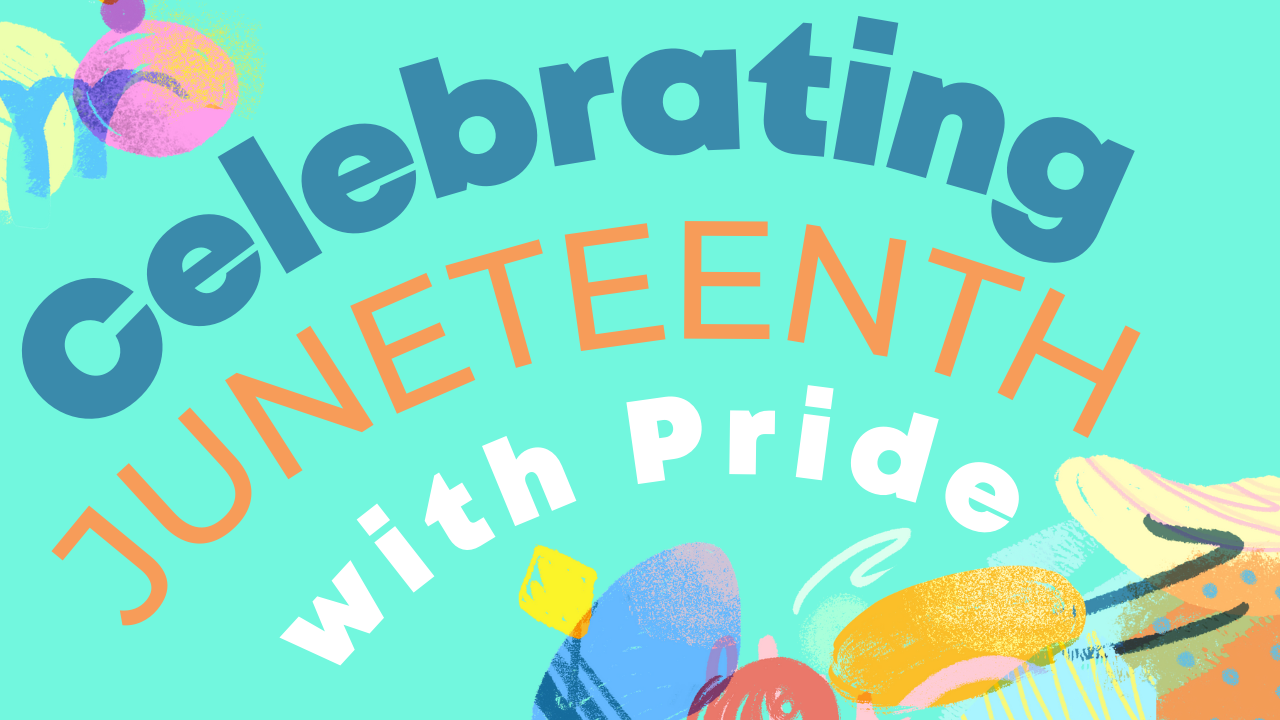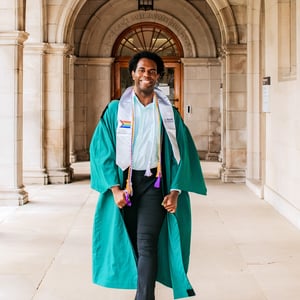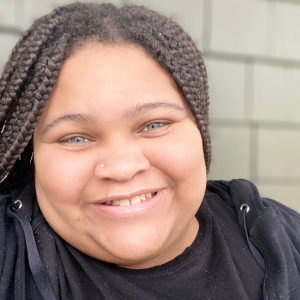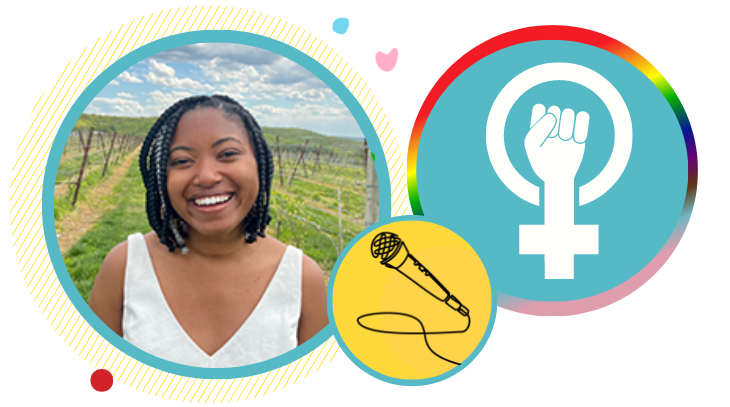Celebrating Juneteenth with Pride

What is Juneteenth?
Juneteenth is an annual federal holiday commemorating the day on which enslaved African Americans in Texas became the last enslaved Americans freed by Union Troops after the Civil War. It presents a unique occasion to honor the struggles and triumphs of the Black community. The celebration takes place on June 19, co-occurring with Pride month. This intersection creates an opportunity to address issues faced by the Black LGBTQ+ community.
What does Juneteenth have to do with Pride Month?
“While Juneteenth and Pride month have two distinct histories in which they sprung into fruition, especially for Black LGBTQ+ people, the celebrations should not necessarily be separate,” said Point Access Scholar Marc Ridgell (they/them).
 Marc graduated from Washington University in St. Louis with a degree in African American Studies. They are currently a doctorate student in Africana Studies at the University of Pennsylvania.
Marc graduated from Washington University in St. Louis with a degree in African American Studies. They are currently a doctorate student in Africana Studies at the University of Pennsylvania.
The first Pride March and, subsequently, Pride Month can be historically credited in part to activists like biracial, self-described butch lesbian Stormé DeLarverie and Black trans activist Marsha P. Johnson who were both active in the Stonewall uprising and the organizing in the days after which led to the establishment of an annual march. Juneteenth can celebrate the activism and change-making actions of lesbian, gay, bisexual, transgender, and queer Black people across history.
Marc cites academic Cathy Cohen’s work exploring that Black people in colonized societies, like African Americans living in the United States, already have their gender and sexuality seen as “non-normative.” This applies even to Black people who identify as cisgender and heterosexual. They, just like their queer and trans siblings, have all experienced forms of gender and sexual marginalization.
Celebrating Pride and Juneteenth Today
 Point Alum Zaria Karakashian-Jones (she/her) is studying economics at Tufts University. She has celebrated Juneteenth all her life. As the founder of Brookline For The Culture, she organizes diversity, equity, and inclusion initiatives. When hosting Juneteenth events, Zaria has begun to incorporate her LGBTQ+ identity.
Point Alum Zaria Karakashian-Jones (she/her) is studying economics at Tufts University. She has celebrated Juneteenth all her life. As the founder of Brookline For The Culture, she organizes diversity, equity, and inclusion initiatives. When hosting Juneteenth events, Zaria has begun to incorporate her LGBTQ+ identity.
“For so long, so many black and brown LGBTQ+ folks could not see themselves represented in celebrations, and I make it my job to ensure that they see themselves in every aspect of the event,” Zaria said.
Zaria sees June as a time to shed light on the epidemic of violence against Black trans women.
Marc noted that many Black people across the LGBTQ+ spectrum disproportionately experience violence. Black trans and nonbinary people experience violence because of their perceived “passability."
Widespread misogynoir and lesbophobia impact Black cisgender lesbians and Black trans women daily. The HIV/AIDs epidemic is still occurring for Black gay and bisexual cis and trans men who have sex with men, as well as Black trans women.
These issues should receive more attention as anti-LGBTQ+ legislation grows across the US. Today Black LGBTQ+ people may be at even more risk of forms of violence -- especially those that are poor, disabled, and trans.
Black Pride in Higher Education Year-round
Marc and Zaria want to see universities do more to support the unique needs of Black LGBTQ+ students year-round.
“Everyone can do the work to benefit the most vulnerable Black, LGBTQ+, or other marginalized communities in their respective fields, and I wished that universities would emphasize that more,” Marc said.
Universities are models of the real world, and therefore reflect the violence and oppression Black LGBTQ+ people face outside of campus Marc said. To combat this, Marc believes universities should invest in programming and services for students at the intersections of many identities. They also believe that schools should have all students learn about social inequality, regardless of the students’ area of study.
“Just because someone is studying to be a doctor, engineer, lawyer, academic, business professional does not mean that their fields do not have legacies of oppression to address,” Marc said.
For identity-focused months like Pride, Marc suggests schools hold interactive programming with a focus on race, class, gender, sexuality, ability, and one’s relation to white supremacy.
Zaria calls for universities to celebrate and support Black LGBTQ+ students year-round.
“I think they can begin to take steps to support marginalized communities year-round by speaking out against legislation that targets trans youth [and] legislation that bans black books,” Zaria said.
Related Posts
March 10, 2023, Point Foundation

A Tradition of Black LGBTQ+ Women Creators
Although she is currently pursuing an MFA in Poetry at New York University, Point Foundation...
March 19, 2020, teampoint

Should I come out in my application?
I was dressed in a navy suit with red corgi socks and a pink bow tie. I had looked at myself in the...
August 19, 2022, teampoint

Alum Spotlight: Mentorship & Representation
Ten years ago, as part of an exercise at Point’s National Leadership Conference, Adaobi Kanu wrote...